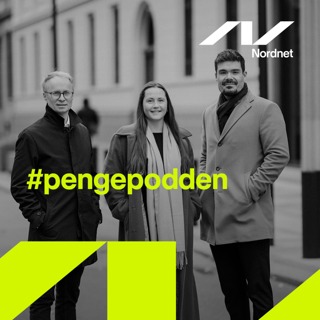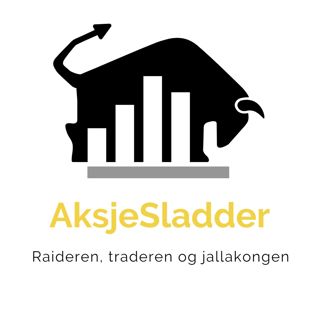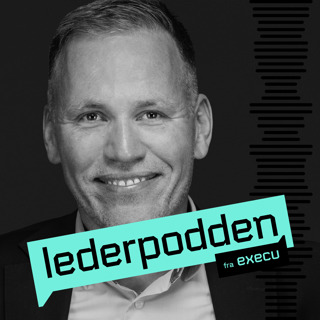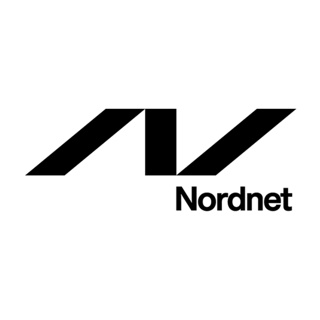
a16z Podcast: Ben and Marc Explain (Practically) Everything – Part 1
Around the firm we use “software eats the world” as a guide for how technology will impact every industry and every person – from education to healthcare and government. As a16z marks its five-year anniversary, we turned to the fellow who came up with the thesis, Marc Andreessen, to explain how it’s rippling around the globe. And to break down all the implications for building companies and managing people we tapped a16z's cofounder Ben Horowitz. With both “a” and “z” in the room, this segment takes stock of the technology industry and startup ecosystem – from entrepreneurs to investors, and where it’s all headed next. Part one of two.
25 Aug 201427min

a16z Podcast: The Topic That's Lasted the Entire History of Computing -- Bundling and Unbundling
Jim Barksdale in the run-up to the Netscape IPO told potential investors that you can make money in software in two ways: bundling and unbundling. Benedict Evans and Steven Sinofsky revisit that thesis in the context of a mobile app world -- how Facebook for example, is unbundling itself, while at the same time Baidu is bundling everything together as fast as it can. How and why Barksdale's thesis is very much alive and well in the mobile world. All that, and the proper use of "fissiparousness" in a sentence.
15 Aug 201419min

a16z Podcast: The Consumerization of IT
Peter Levine goes deeper into the changing nature of the data center with Yoram Novick, CEO of Maxta, and Florian Leibert, CEO of Mesosphere. Does ARM architecture, the foundation of the chips in practically every mobile phone, have what it takes to displace X86 processors in the data center? Is the private cloud --- effectively a company operating its own data center -- dead, or will a hybrid public/private cloud model dominate? Given all the upheaval in the data center how do startups fit into the equation, and how are they competing today with legacy technologies and companies? The views expressed here are those of the individual AH Capital Management, L.L.C. (“a16z”) personnel quoted and are not the views of a16z or its affiliates. Certain information contained in here has been obtained from third-party sources, including from portfolio companies of funds managed by a16z. While taken from sources believed to be reliable, a16z has not independently verified such information and makes no representations about the enduring accuracy of the information or its appropriateness for a given situation. This content is provided for informational purposes only, and should not be relied upon as legal, business, investment, or tax advice. You should consult your own advisers as to those matters. References to any securities or digital assets are for illustrative purposes only, and do not constitute an investment recommendation or offer to provide investment advisory services. Furthermore, this content is not directed at nor intended for use by any investors or prospective investors, and may not under any circumstances be relied upon when making a decision to invest in any fund managed by a16z. (An offering to invest in an a16z fund will be made only by the private placement memorandum, subscription agreement, and other relevant documentation of any such fund and should be read in their entirety.) Any investments or portfolio companies mentioned, referred to, or described are not representative of all investments in vehicles managed by a16z, and there can be no assurance that the investments will be profitable or that other investments made in the future will have similar characteristics or results. A list of investments made by funds managed by Andreessen Horowitz (excluding investments and certain publicly traded cryptocurrencies/ digital assets for which the issuer has not provided permission for a16z to disclose publicly) is available at https://a16z.com/investments/. Charts and graphs provided within are for informational purposes solely and should not be relied upon when making any investment decision. Past performance is not indicative of future results. The content speaks only as of the date indicated. Any projections, estimates, forecasts, targets, prospects, and/or opinions expressed in these materials are subject to change without notice and may differ or be contrary to opinions expressed by others. Please see https://a16z.com/disclosures for additional important information.
31 Jul 201422min

a16z Podcast: Mobile Invades the Data Center
There is a shift in enterprise hardware from expensive, proprietary hardware to cheap components plucked directly from the consumer hardware supply chain. While that trend has been underway for some time thanks to companies like Google, Facebook and Amazon rolling their own data centers, the next wave of enterprise IT is taking its cues from the mobile supply chain’s collection of components -- the stuff that your mobile phone is made of. That includes everything from power-sipping ARM chips to flash-based memory. Andreessen Horowitz’s Peter Levine is joined by Coho Data CEO Ramana Jonnala and Cumulus Networks CEO JR Rivers for a discussion about the consumerization of the datacenter. Where is the hardware coming from? How will software make it all work? What does it mean for incumbent hardware and software vendors? And how will customers buy all this data center muscle? The views expressed here are those of the individual AH Capital Management, L.L.C. (“a16z”) personnel quoted and are not the views of a16z or its affiliates. Certain information contained in here has been obtained from third-party sources, including from portfolio companies of funds managed by a16z. While taken from sources believed to be reliable, a16z has not independently verified such information and makes no representations about the enduring accuracy of the information or its appropriateness for a given situation. This content is provided for informational purposes only, and should not be relied upon as legal, business, investment, or tax advice. You should consult your own advisers as to those matters. References to any securities or digital assets are for illustrative purposes only, and do not constitute an investment recommendation or offer to provide investment advisory services. Furthermore, this content is not directed at nor intended for use by any investors or prospective investors, and may not under any circumstances be relied upon when making a decision to invest in any fund managed by a16z. (An offering to invest in an a16z fund will be made only by the private placement memorandum, subscription agreement, and other relevant documentation of any such fund and should be read in their entirety.) Any investments or portfolio companies mentioned, referred to, or described are not representative of all investments in vehicles managed by a16z, and there can be no assurance that the investments will be profitable or that other investments made in the future will have similar characteristics or results. A list of investments made by funds managed by Andreessen Horowitz (excluding investments and certain publicly traded cryptocurrencies/ digital assets for which the issuer has not provided permission for a16z to disclose publicly) is available at https://a16z.com/investments/. Charts and graphs provided within are for informational purposes solely and should not be relied upon when making any investment decision. Past performance is not indicative of future results. The content speaks only as of the date indicated. Any projections, estimates, forecasts, targets, prospects, and/or opinions expressed in these materials are subject to change without notice and may differ or be contrary to opinions expressed by others. Please see https://a16z.com/disclosures for additional important information.
31 Jul 201425min

a16z Podcast: An Open Source Business Model That Works
Open source software has permeated practically every nook of the software world. The biggest companies and largest-scale systems all lean heavily on open source code. Yet, with the exception of Red Hat, no one has built a great business on top of open source software. That’s because what companies should be selling isn’t necessarily the software, or even support, says a16z’s Peter Levine, but a service that leverages open source. One example of such a service is DigitalOcean, which has built a cloud environment tailored to the needs of developers. DigitalOcean CEO and cofcounder Ben Uretsky joins Levine from his New York City HQ for a discussion about open source-as-a-service, how companies of all sizes should think about leveraging open source, and whether we’ll start to see a slew of specialized clouds geared toward different verticals.
31 Jul 201423min

a16z Podcast: The Wearables Session
Fashion, function or just a fad? Wearable technology is getting huge amounts of attention from companies of every size and stripe. Consumers are slapping on fitness bands, experimenting with smart watches and trying on jewelry that syncs with their smart phones. Christina Mercando, CEO and co-founder of Ringly, which fits in the fashion/jewelry segment of wearables, joins a16z’s Chris Dixon in a discussion about this emerging technology segment. What is working today, and where things are headed in wearables.
31 Jul 201414min

a16z Podcast: Building Marketplaces with the Power of Community
There are great examples of communities helping to grow and solidify online marketplaces. eBay in its early days certainly leveraged the power of community to bring buyers and sellers onto its platform. Today, companies like Etsy, Uber and Airbnb are turning toward community for new ideas and new customers. But how do you build community, and how do you balance the needs of the community and the needs of the business? Or to put it another way, how do you simultaneously give up control and maintain control? Andreessen Horowitz board partner Boris Wertz – who built his own community while running Abe Books – is joined by Tindie’s CEO Emile Petrone and head of engineering Julia Grace to pick apart the notion of community. Can it be engineered? How much leverage do you give your “super-users,” and for some businesses is community even necessary?
31 Jul 201424min

a16z Podcast: The Micro and Macro of Mobile
Apple during its most recent quarter reported growing app store sales and flat iPad sales. Where do tablets go from here, especially in light of the Apple and IBM partnership announced? How does the iOS ecosystem stack up against Android now that we can (somewhat) accurately compare the two? Benedict Evans analyzes the small details and big moves driving the mobile industry, and makes an argument for why the impact and opportunity of mobile far exceeds the sheer number of devices.
25 Jul 201417min






















